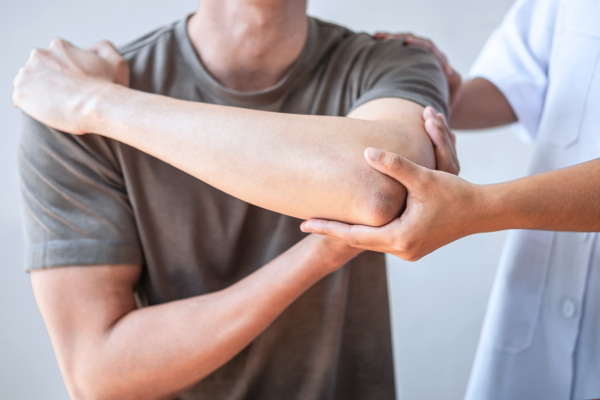Population health means improving the health of entire communities, not just individuals.
This can be done by preventing illnesses, managing long-term conditions that affect many people, like heart disease, or improving other factors that affect a population’s health such as housing, instability, homelessness, or severe deprivation.
These factors can cause a range of health problems, including respiratory conditions and common mental health disorders, such as depression and anxiety. Our boroughs see some of the highest rates of severe mental illness, made worse by the COVID-19 pandemic. To best serve our communities, our health and care system must be person-centred while remaining adaptive to population needs.
- The healthy life expectancy gap, for people in the most deprived London boroughs compared to the most advantaged, is more than 10 years;
- More than 4 million people with a long-term physical health conditions also experience mental illness in England, leading to poorer overall health outcomes;
- Cardiovascular disease causes one in four premature deaths in the UK and is a major contributor to health inequalities, particularly in areas with high levels of deprivation. For example, 28% of patients on the hypertension register in south east London have uncontrolled high blood pressure.
Our vision
We will deepen our understanding of patients and communities in our population and empower them to live healthier lives by providing robust evidence and co-creating innovative initiatives that lead to more accessible, equitable, and impactful healthcare.
Patients and communities
Work with partners, patients, and communities to co-develop and prioritise the most impactful proactive and preventative health initiatives, ensuring more people benefit from evidence-based, personalised care.
For example we will:
- Generate evidence and accelerate preventative health interventions to improve outcomes for those affected by the greatest disease burdens, particularly underrepresented communities;
- Innovate how we turn personalised insights into real-time improvements using methodologies such as the NHS Patient Survey Programme, Friends and Family Test, Patient Reported Outcome Measures, and Patient Reported Experience Measures.
Staff and students
Build an agile and adaptable health and care workforce empowered to apply population-wide principles to their practice.
For example we will:
- Understand existing capabilities, knowledge, and strengths of our communities' health and care workforce, to find and fill population health education gaps through bespoke training;
- Develop bespoke population health training resources, enabling the health and care workforce to apply population-wide principles to their practice, and exploring innovations such as health coaching that respond to individual, population, and system needs.
Partners and the wider health economy
Work with partners to collect and share comprehensive evidence that deepens understanding of our population’s physical and mental health, burden of disease, and how environment impacts wellbeing.
For example we will:
- Share cross-partnership expertise on how to scale impactful prevention programmes, learning and building on innovations and implementation methods used, for example for the Vital 5 Check;
- Provide new population health insights to inform evidence-based commissioning and system-wide improvements with global impact, including by leveraging analytical expertise through the King's Population Health Institute.
Impact into action
The Vital 5 assesses five key measures, including blood pressure, tobacco dependency, unhealthy weight, mental health, and alcohol intake, shedding light on a person's overall health and wellbeing and supporting access to early intervention and preventative advice. A collaboration between KHP and the South East London Integrated Care Board - more than 150,000 Vital 5 Checks have been delivered in south east London, for example at a kiosk, local pharmacy, or through community-based outreach.
NIHR ARC researchers tested a new integrated model of care, called the Children and Young People’s Health Partnership (CYPHP), to improve care for all children and young people living in Lambeth and Southwark. Hosted by Evelina London Children’s Hospital and King’s College London, it was co-designed by local clinicians, parents, carers, children and young people, researchers, commissioners, and healthcare providers. In a three-year clinical trial involving nearly 100,000 children from across 70 general practices in Lambeth and Southwark, the research team compared the CYPHP model to standard paediatric services. The trial showed improved health outcomes and quality of care for children with long-term conditions, such as asthma and eczema.
King's Health Partners partnered with The Lancet Diabetes & Endocrinology to organise a global commission with the goal of addressing key questions surrounding obesity, a condition that affects millions. Its findings introduce two new classifications of pre-clinical and clinical obesity and how to prevent, diagnose, and treat the condition. Following the commission's international launch, receiving global attention from 92 countries, our teams are exploring how best to implement and scale these ground-breaking recommendations.
The UK's first industry-funded whole-body positron emission tomography (PET) scanner is being used to assess patients in St Thomas' Hospital. It is two to three times faster, produces half the radiation making it feasible for use in children for the first time, and creates more detailed images than other PET scanners. This cutting-edge innovation improves NHS efficiency, quality of care, and is now being used by researchers across the partnership to test a new imaging tracer for people with cancer.
The clinical insight tool LUCI is used by clinical care teams at South London and Maudsley NHS Foundation Trust, to help them easily find key information in complex medical records and access summaries at individual and population level. This revolutionary tool brings together experts from the trust, the NIHR Maudsley Biomedical Research Centre, and the IoPPN, using natural language processing techniques to extract information from records.




